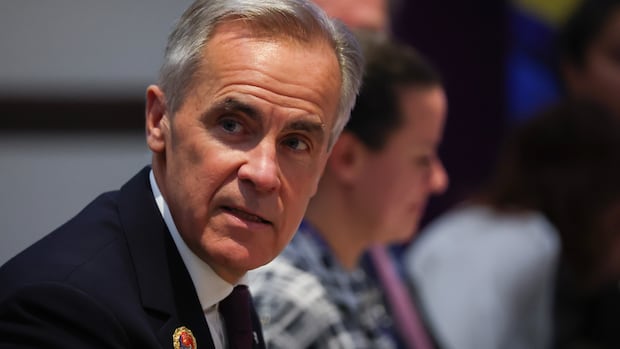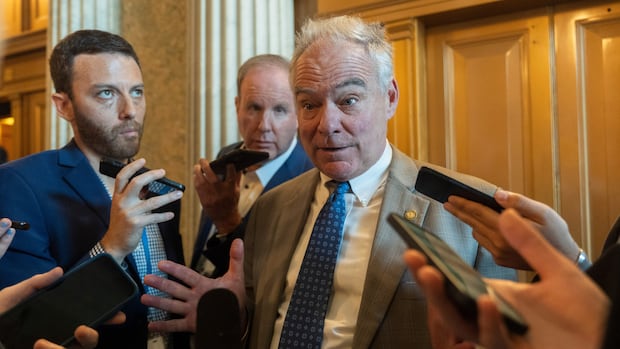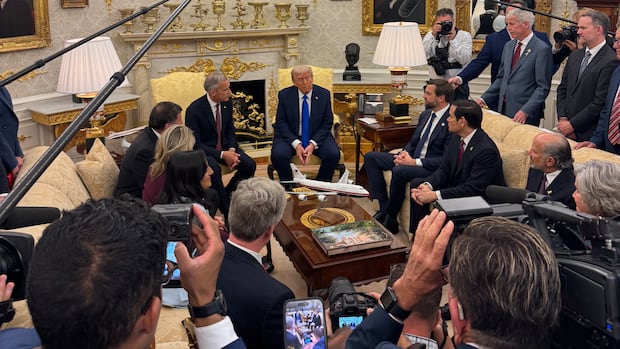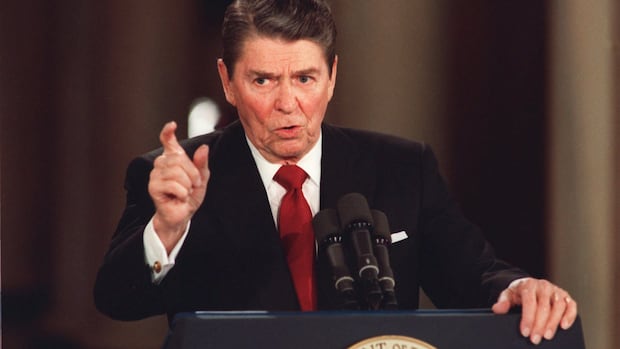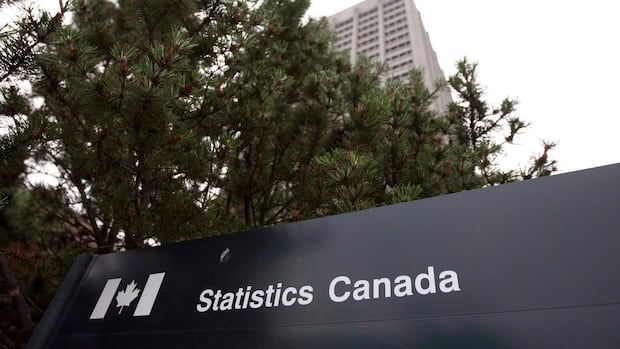An Ontario government ad that attracted the wrath of U.S. President Donald Trump was successful — even if it didn’t produce the outcome provincial officials might have anticipated, say experts in political communication.
And, they expect, it will not face any serious legal challenges in the U.S., which allows a lot of latitude when it comes to political commentary.
The ad, which is airing in the U.S., features audio clips criticizing tariffs from a 1987 speech by U.S. President Ronald Reagan. It seems to have incensed Trump, who late on Thursday denounced it as "fake" — abruptly cutting off trade talks and accusing Canada of interfering with an upcoming U.S. Supreme Court decision.
“That ad worked. It was a good ad," said Alex Marland, a professor at Acadia University and the author of a book on political messaging.
He says the challenge for political advertising is to cut through the clutter, resonate with people and get their attention.
"In this particular case, the ad obviously was so successful that the president was upset."
 Alex Marland, a political scientist at Acadia University, says the ad worked because it got attention. (Submitted by Alex Marland)
Alex Marland, a political scientist at Acadia University, says the ad worked because it got attention. (Submitted by Alex Marland)Whether Ontario achieved its goals "is another thing," he said. "But the bottom line is, the ad was getting attention.”
Marland suggested Ontario run the ad for a couple more days in the hopes of getting media attention in the U.S. then “take their time” taking it down.
Premier Doug Ford says Ontario will end the $75 million campaign on Monday, because it achieved its goal “having reached U.S. audiences at the highest levels.” By continuing over the weekend, the ad will be seen during the first two World Series games.
The Ronald Reagan Presidential Foundation and Institute also criticized the ad, alleging it uses “selective audio and video” of the late Republican president. The foundation said it was reviewing its "legal options."
But Marland says the rules regarding such material in political ads have changed.
“I don’t have any concerns about it," he said. "If it gets used for political purposes, the main thing that I would be concerned about is if it’s manipulated, if content is spliced and suggests something that was nonintentional.”
WATCH | Reagan's remarks from 1987:
Jacob Neiheisal, associate professor of political science with the University at Buffalo, also doubts the foundation would have much success with legal action, in part because U.S. courts have historically adopted a hands-off approach when it comes to political speech.
“Apart from defamation or slander or something like that, there’s really not much that can be done if something is simply misleading or even outright false,” he said.
Neiheisal says Ontario’s ad is likely to get noticed in the U.S., but may not sway Republicans who support Trump and could trigger a backlash if it is perceived as outsiders telling Americans what to do.
“A lot of voters recoil very negatively when somebody outside of a district or outside of the area that they live in, has thoughts about what they should be doing. That sentiment, I think, certainly does have the potential to promote some backlash.”
Elly Alboim, a strategic communications expert at Earnscliffe Strategies and an associate professor of journalism at Carleton University, says the effectiveness of the ad will be influenced by how many people see it.
“I thought it was very clever. Whether people will understand it or whether it provides a call for action, I’m doubtful.”
Alboim, who is also a former parliamentary bureau chief for CBC News, said Reagan’s speech is in the public domain and that the ad does what journalists do all the time, use clips from a speech rather than the whole speech.
Albion also questioned why the ad featuring decades-old video from a former president prompted Trump to cancel negotiations.
“The real issue is what is it about this ad that set Trump off like a rocket?”


